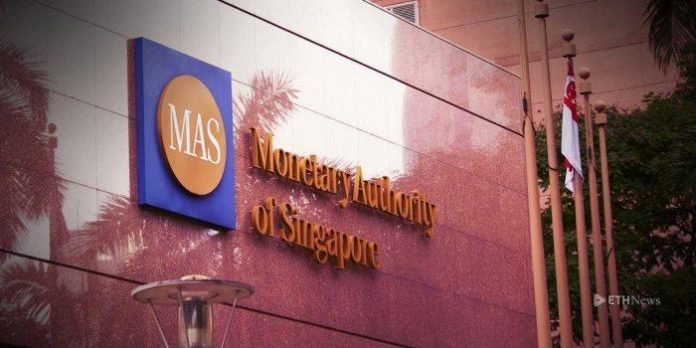November 20, 2018 8:06 PM
Cryptocurrency payment services will be required to apply for one of three licenses: a money-changer, a standard payment institution, or a major payment institution.
The Monetary Authority of Singapore (MAS), the country’s central bank, finalized its Payment Services Bill yesterday, November 19. To keep up with the evolving payment landscape and guard against emerging risks, the bill sets up a new regulatory framework for payment services and allows crypto payment services to become licensed providers.
Currently, under the Payment Systems (Oversight) Act (2006) and the Money-Changing and Remittance Businesses Act (1979), cryptocurrency service providers fall outside of MAS’s jurisdiction. According to Singapore Law Watch, however, the new bill will allow Singapore’s central bank to regulate “the issuing of accounts and electronic money, the transfer of money within and out of Singapore, the acquisition of merchants who will use the platform, money changing and the dealing in and exchange of digital payment tokens such as bitcoin.”
To conduct any of these services, cryptocurrency payment services will be required to apply for licenses as one of the following: a money-changer, a standard payment institution, or a major payment institution.
In an explanatory brief, money-changing and standard payment institutions “will be regulated primarily for [money laundering]/[terrorism financing],” while major payment institutions will be regulated more comprehensively. Standard payment institutions will only be able to accept, process, or execute “a monthly average of payment transactions above $3 million in a calendar year,” with major payment institutions handling everything above that specific threshold.
Tharman Shanmugaratnam, the deputy prime minister and minister in charge of MAS, also clarified that:
“[T]he threshold of e-money that will be protected under the [Payment Services Bill] will be lowered from S$30 million to S$5million. This means that any e-money held by a payment institution will be wholly safeguarded if the average daily float exceeds S$5 million. If the average daily float does not exceed S$5 million, the safeguarding measures will not apply, provided the payment institution makes appropriate disclosures to consumers.”
This clarification may be to reassure crypto payment firms that they will not be over-regulated by MAS. Instead, the requirement to disclose risk to clients gives users the ability to choose what best fits their risk profile.
MAS will allow up to 12 months for payment service providers to comply with the changes when the new bill is enforced next year; digital payment tokens will be given six months to comply.
Nicholas Ruggieri studied English with an emphasis in creative writing at the University of Nevada, Reno. When he’s not quoting Vines at anyone who’s willing to listen, you’ll find him listening to too many podcasts, reading too many books, and crocheting too many sweaters for his dogs, RT and Peterman.
Like what you read? Follow us on X @Bitnewsbot to receive the latest Monetary Authority of Singapore, Payment Services Bill or other Ethereum law and legislation news.
Previous Articles:
- FEC Draft Advisory Opinion Says Crypto Mining For Campaigns Acceptable, With Stipulations
- 0x Launch Kit Lets Users Start A Relayer In Under A Minute
- Huobi Subsidiary Sets Up Communist Party Committee
- KEPCO Looks To Blockchain Technology For New Microgrid In Korea
- NetCentric Is Working With World-Class Crypto Exchanges Making Advanced Quantitative-Trading Technology A Reality For All Crypto-Investors

